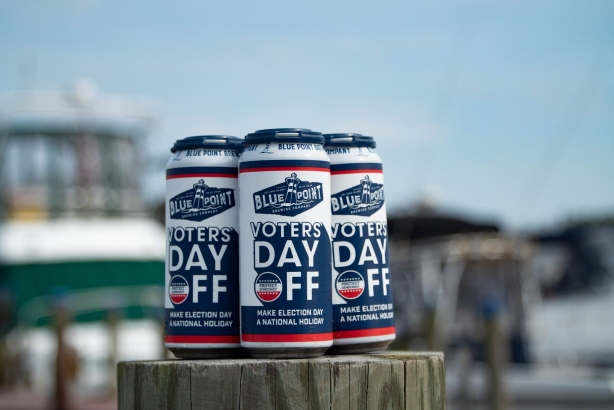Thomson Reuters
- Earnings season is offering insight into how the US presidential election may impact big companies.
- So far, they’re commenting on how Election Day itself could sway their financial results.
- Here are the effects that companies from Citigroup to Delta are anticipating ahead of November 5.
The US presidential election is fast approaching, and companies from Citigroup to Delta are flagging how it might affect their businesses.
CEOs and other business leaders have weighed in on Kamala Harris and Donald Trump and the effects that each candidate would have on their companies if elected.
They’re also pointing to the effects that Election Day itself, November 5, will likely have on their businesses — everything from drinkers buying less to companies issuing debt sooner.
Alphabet, which owns Google, said on a Tuesday earnings call that YouTube has seen “pronounced” election-related ad spending ahead of November.
Here are some of the election’s potential effects, as described by major companies on their recent analyst calls:
Shoppers could hold back some spending leading up to election day
Some retailers and brands have said they expect consumers to delay some purchases until after November 5.
“We do expect that consumer spending leading up to the federal election will be dampened both just with distraction as well as a little bit of wait-and-see mode,” Tractor Supply Company CEO Harry Lawton said last week. Lawton said that such a slowdown “is typical in an election year.”
“Anybody living in the US, you’re exposed to negative news every day and negative messages every day,” said Marc Bitzer, CEO of appliance maker Whirlpool. “And that does not lift consumer sentiment.”
Nestlé, which makes products from KitKat candy bars to Fancy Feast cat food, also indicated that it’s seeing slower consumer spending in ahead of election day.
“We have seen a slowdown in the US, particularly in pet, and some of the concerns around the elections are playing out,” CFO Anna Manz said on the company’s October 17 earnings call.
Drinkers could pull back on beer, Modelo’s maker said
Constellation Brands, which makes Corona and Modelo, often sees beer consumption slowing down around contentious US elections, CEO William Newlands said during an earnings call on October 3.
“Where you have a federal election that is close, you often have people pull back,” Newlands said. “You see it across the whole consumer sector, and that is consistent as well.”
Constellation expects beer sales to pick up again after the election is decided, he added.
Airlines expect fewer people to travel around Election Day
People will likely hold off on other kinds of spending around Election Day.
Delta Air Lines, for instance, expects a 1 percentage point hit to its revenue this quarter as people avoid traveling in the two weeks around Election Day, Glen Hauenstein, Delta’s president, said earlier this month.
That two-week period will be “way off-trend,” Hauenstein said on Delta’s earnings call.
“As we’ve seen historically, domestic travel demand is impacted in the weeks surrounding the election,” he said.
Delta saw something similar happen after the 2016 election, Hauenstein said at the time. “The election came, and almost instantly, almost to the week after the election day, it seemed like there was an incredible amount of pent-up demand in the system,” he said at an investor day event in December that year.
United Airlines also said this month that it expects passenger numbers to dip in the days around the election.”Fewer people travel that week for the obvious reasons,” said Andrew Nocella, United’s chief commercial officer.
And Southwest Airlines COO Andrew Watterson mentioned “the anticipated election trough” during the company’s call last week.
Royal Caribbean International CEO Michael Bayley said Tuesday the cruise industry could see some “volatility,” but is not expecting a significant impact.
“We’ve gone back and done the analysis over literally decades,” he said. “There’s effectively no impact on bookings as a result of elections, no matter which way they go.”
Companies are issuing debt ahead of Election Day, according to Citigroup
Investment banking fees rose 44% during Citigroup’s third quarter, CEO Jane Fraser said.
“That’s driven by investment-grade debt issuance as our clients pulled forward activity ahead of the US election,” Fraser said on an earnings call earlier in October.
Other major investment banks, such as Goldman Sachs and Bank of America, didn’t comment on their own calls this month about the effects of Election Day or any potential impacts from either presidential candidate’s win.
Differences between Harris and Trump on taxes, tariffs, and other issues could lead to very different outcomes for Wall Street depending on who wins the presidential election.
